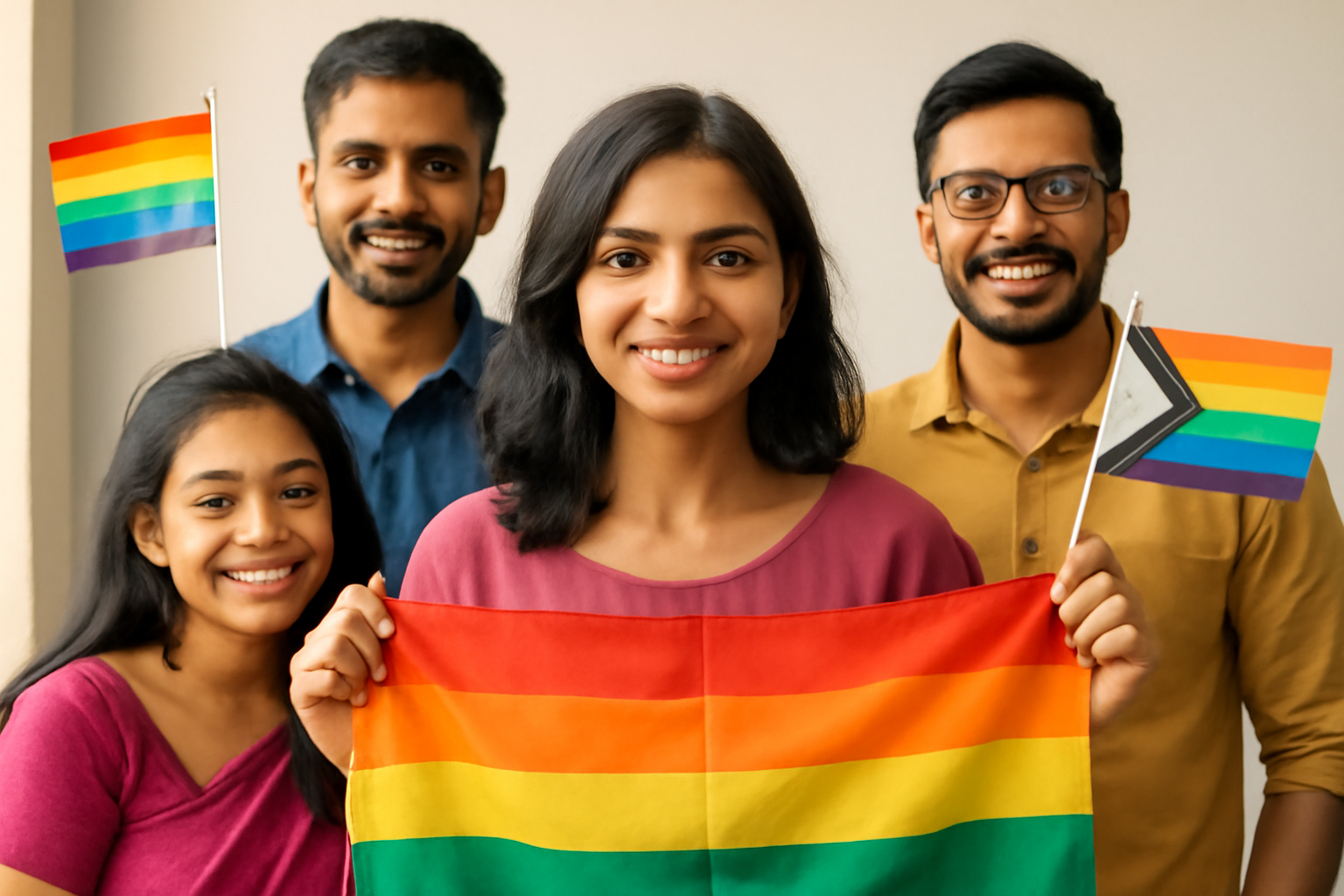
Editor’s note: Recent developments have seen a significant reduction in international aid contributions, particularly affecting LGBTQ communities across South Asia.
The decision to halt nearly all U.S. foreign aid programs has severely affected LGBTQ communities in countries such as India, Nepal, Bangladesh, and Pakistan. The aid suspension has dismantled numerous USAID-backed projects, jeopardizing essential healthcare, job opportunities, and services that LGBTQ communities rely on when their local governments fall short.
For years, USAID has been a leading supporter of LGBTQ initiatives worldwide. With programs like the LGBTI Global Development Partnership, which awarded over 100 grants and trained more than 1,700 LGBTQ entrepreneurs, USAID has made significant impacts. In 2022, the agency launched the Alliance for Global Equality, a five-year initiative led by Outright International and the LGBTQ+ Victory Institute, which had awarded 39 grants across 16 countries totaling nearly $800,000 by March 2024, aiming to enhance LGBTQ human rights and inclusion.
In Nepal, USAID's efforts included the Rights for Gender Diverse Populations program, which collaborated with local groups to enhance LGBTQ rights awareness and improve access to healthcare and legal services for marginalized communities. However, these initiatives now face uncertainty due to the aid freeze.
India's MIST LGBTQ Foundation, based in Pune, Maharashtra, is one organization grappling with the funding cut. This foundation has been pivotal in HIV prevention, distributing PrEP, and running empowerment programs, partnering with healthcare professionals to deliver vital services. MIST founder and CEO, Shyam Konnur, highlighted the importance of their work in reaching those who are reluctant to approach NGOs or government testing centers due to stigma.
"We managed to ensure test kits reached the homes of those preferring home testing," Konnur told a local newspaper. "Distribution of PrEP and condoms was also part of our initiative." MIST is currently seeking new funding sources from corporate leaders and individual donors to mitigate the impact of the funding gap.
In 2021, the U.S. President's Emergency Plan for AIDS Relief (PEPFAR) and USAID supported the establishment of Mitr Clinic in Hyderabad, India's first comprehensive health center for the trans community. However, the recent funding issues have forced its closure, affecting the services it provided.
The funding freeze has also impacted Bangladesh, where USAID has been instrumental in advancing LGBTQ initiatives. The country recognized "hijras" as a third gender in 2014, and USAID efforts in 2021 helped ensure their inclusion in the national Census. The SHOMOTA (Equality) Project, launched in partnership with local organizations, aimed to uplift the socio-economic status of trans and hijra communities but now faces uncertainty.
Over 100 development projects in Bangladesh have been halted, affecting around 50,000 NGO workers. In Pakistan, the freeze has disrupted HIV/AIDS prevention and treatment programs, primarily affecting trans people and men who have sex with men, who have lost access to critical medications and support services.
Nepal’s LGBTQ community is also on edge due to a recent directive mandating the U.S. federal government to recognize only two genders, potentially cutting federal funding for trans-related programs. This could impact over a dozen LGBTQ groups and jeopardize around 300 jobs. Sunil Babu Pant, a prominent LGBTQ rights activist, noted that while many U.S.-funded programs are affected, some government-funded health services remain intact.
The widespread effects of the U.S. aid freeze on LGBTQ communities in South Asia highlight the vulnerability of marginalized groups dependent on international support. As these communities seek alternative funding, the situation underscores the critical need for sustainable local support systems to ensure the continuation of vital services and advocacy.
Efforts to fill the financial void left by the U.S. aid suspension are underway, with organizations reaching out to corporate sponsors and exploring new partnerships. The hope is to continue the fight for LGBTQ rights and support in South Asia despite these challenging times.
Related Posts
Trump Inaugurated as 47th President Amid Concerns for LGBTQ+ Community
Donald Trump has been sworn in as President once again, marking his second term as America's 47th leader. This significant event in U.S. politics promises profound impacts, especially concerning LGBTQ+ rights. Taking office: promises and challenges Amidst a harsh winter storm, Trump took his oath indoors at U.S. Capitol on January 20. Alongside him, Vice-President JD Vance also stepped up, both [...]
Daniel Craig's "Queer" Overlooked by BAFTA: A Surprising Omission
Daniel Craig's film, Queer, snubbed by BAFTAs despite rave reviews In a surprising twist, Daniel Craig's newest film, *Queer*, failed completely on BAFTA's nomination list this year. It's a head-scratcher, considering how critics have sung its praises and Craig delivered such a standout performance. Yet, not a single nod from BAFTA. Go figure. fans and critics baffled by BAFTA snub The exclusio [...]
Generations of LGBTQ+ Athletes: From Past Challenges to Modern Triumphs
In a captivating display that brought together voices across generations, two gay athletes from different times came together on a TV show, sharing their journeys and thoughts on LGBTQ+ representation in sports. This insightful program shed light on how inclusivity and acceptance in athletics have evolved over time. Connecting past and present: The stories behind Andrew Purchas and Davis Atkin L [...]